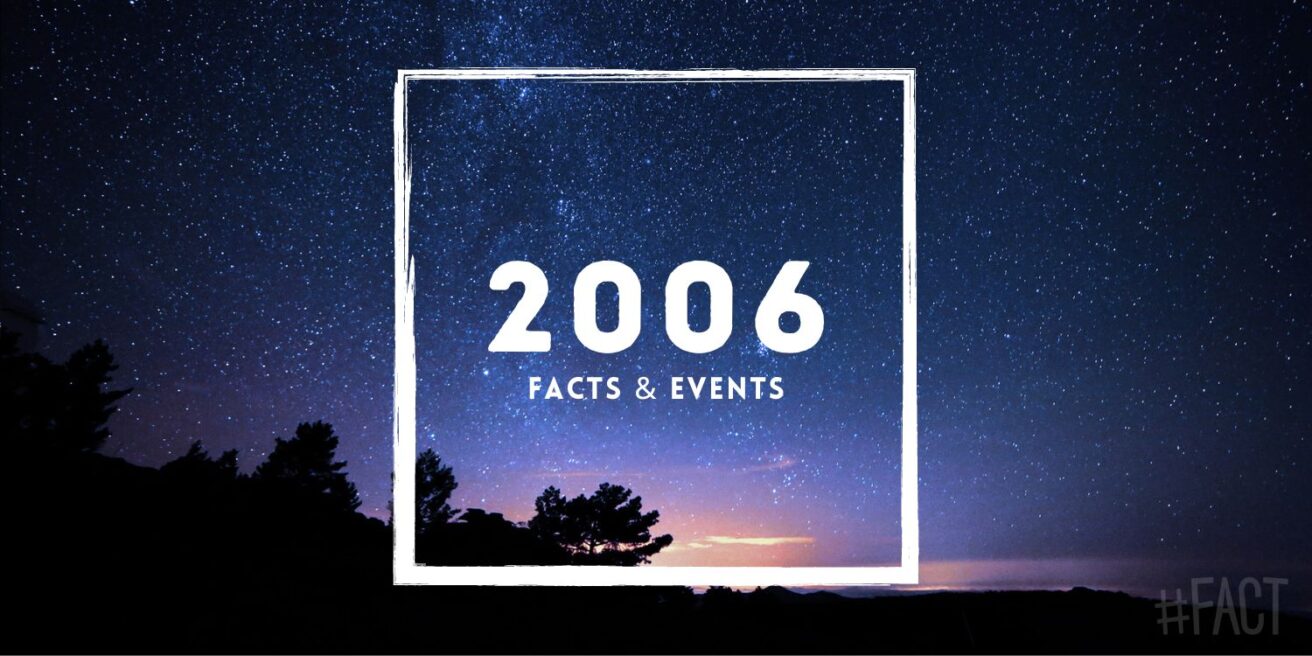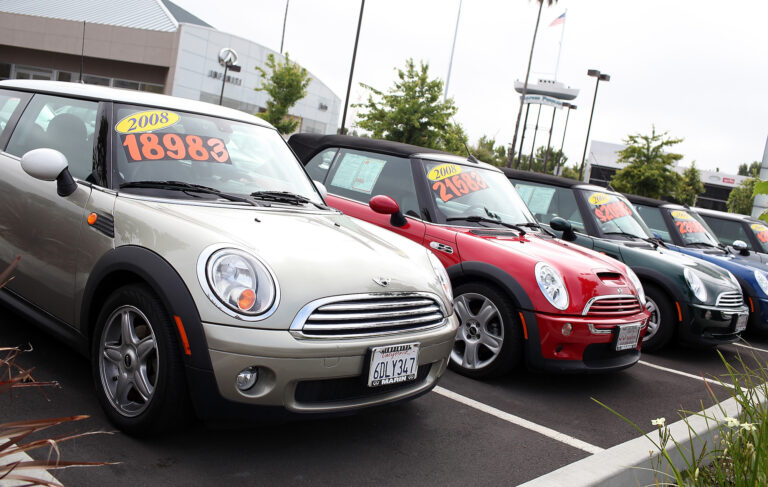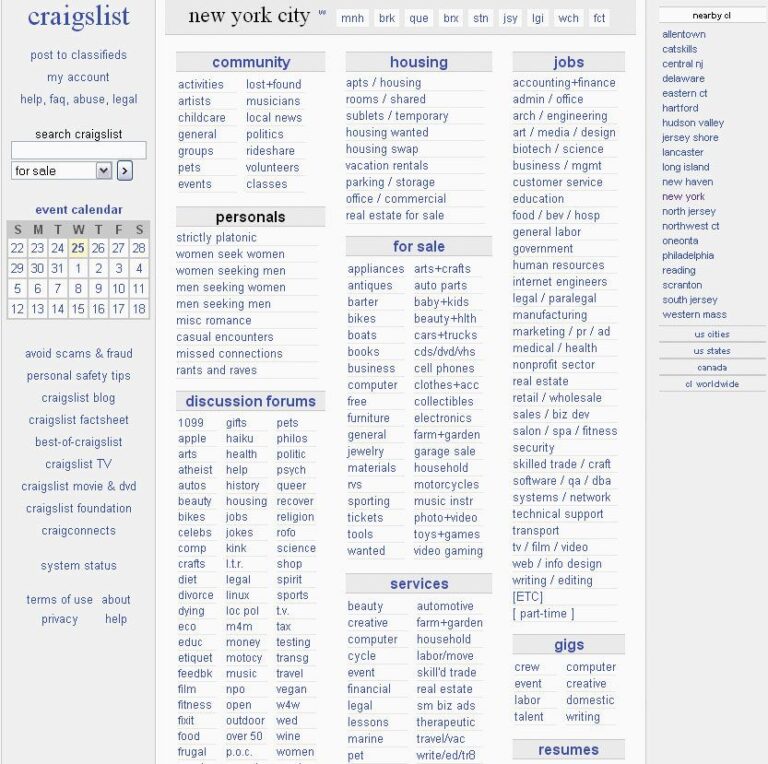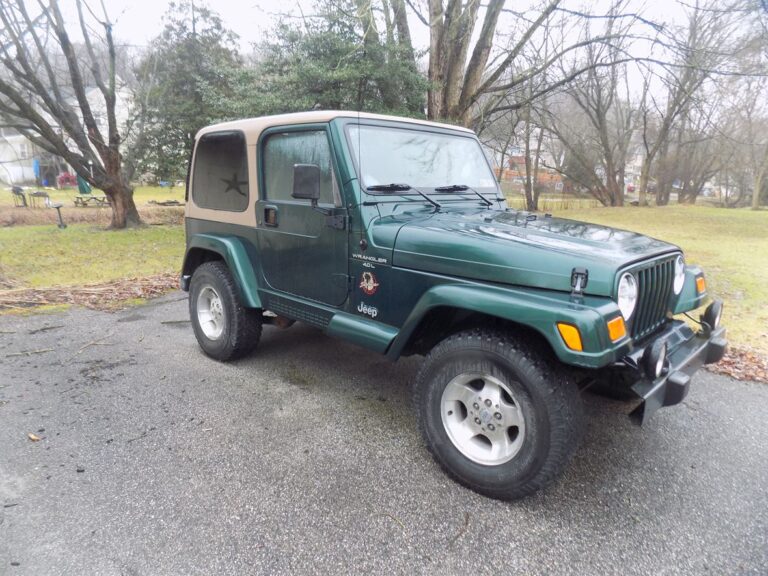2006 Jeep Grand Cherokee Engine For Sale: A Comprehensive Guide to Revitalizing Your WK
2006 Jeep Grand Cherokee Engine For Sale: A Comprehensive Guide to Revitalizing Your WK jeeps.truckstrend.com
The 2006 Jeep Grand Cherokee, part of the WK generation, remains a popular choice for its blend of off-road capability, on-road comfort, and robust design. However, like any vehicle approaching two decades of service, its engine may eventually reach the end of its life. When faced with a major engine issue – be it a catastrophic failure, excessive oil consumption, or simply a tired, high-mileage power plant – the question often arises: Is it worth replacing the engine, or is it time for a new vehicle? For many Grand Cherokee owners, finding a "2006 Jeep Grand Cherokee Engine For Sale" represents a cost-effective and practical solution to extend the life of their beloved SUV, offering a renewed lease on performance and reliability without the significant financial outlay of a new car.
This comprehensive guide will delve into everything you need to know about purchasing a replacement engine for your 2006 Jeep Grand Cherokee, from understanding your engine options and available types of replacement units to practical buying tips, installation considerations, and potential challenges.
2006 Jeep Grand Cherokee Engine For Sale: A Comprehensive Guide to Revitalizing Your WK
Understanding the 2006 Jeep Grand Cherokee Engine Options
The 2006 Jeep Grand Cherokee was offered with a range of engines, each catering to different performance and efficiency needs. Identifying your specific engine type is the absolute first step before searching for a replacement, as compatibility is paramount. The WK generation (2005-2010) featured the following engine choices:
- 3.7L PowerTech V6: This SOHC (Single Overhead Cam) V6 engine was the base offering, known for its decent fuel economy and adequate power for daily driving. It produced around 210 horsepower and 235 lb-ft of torque. While generally reliable, some units could experience issues like valve seat drop if not properly maintained.
- 4.7L PowerTech V8: A step up in power, this SOHC V8 delivered around 235 horsepower and 305 lb-ft of torque. Later versions (2008+) saw improvements to 305 hp. It offered a good balance of power for towing and off-road use. Early versions had some reputation for valve seat issues or sludge build-up if oil changes were neglected.
- 5.7L HEMI V8: For those seeking robust power and towing capacity, the 5.7L HEMI V8 was the go-to choice. Featuring Chrysler’s Multi-Displacement System (MDS) for improved fuel economy at cruising speeds, it produced approximately 330 horsepower and 375 lb-ft of torque. These engines are generally robust but can suffer from lifter and cam issues, especially if oil changes are stretched.
- 6.1L SRT8 HEMI V8: Exclusively found in the high-performance Grand Cherokee SRT8, this naturally aspirated beast was designed for speed. It churned out an impressive 420 horsepower and 420 lb-ft of torque. Due to its specialized nature and performance demands, finding a standalone 6.1L engine can be more challenging and expensive.
- 3.0L OM642 Mercedes-Benz CRD Diesel V6: Offered in select markets (including North America), this common rail diesel engine provided excellent torque (around 215 hp and 376 lb-ft) and significantly better fuel economy than its gasoline counterparts. It’s a robust engine but requires specific diesel maintenance and can be more complex to service.

To ensure you purchase the correct engine, always verify your vehicle’s original engine code, which can typically be found on a sticker under the hood, on the driver’s side door jamb, or decoded from your vehicle’s VIN (Vehicle Identification Number).
Why Buy a Replacement Engine? Common Scenarios
The decision to replace an engine often stems from one or more critical issues that make repair impractical or uneconomical. Common scenarios include:
- Catastrophic Engine Failure: This is the most common reason. Rod knock, a seized engine, significant internal damage from overheating, or a timing chain/belt failure can render an engine irreparable or too costly to rebuild.
- Excessive Oil Consumption/Burning: While some oil consumption is normal, extreme cases can indicate worn piston rings, valve seals, or other internal wear that significantly impacts performance and requires constant topping off.
- Persistent Mechanical Issues: Repeated or unresolved problems like misfires, loss of compression, or persistent warning lights that point to deep-seated engine issues can lead owners to consider a full replacement.
- High Mileage and Wear: Even without a catastrophic failure, an engine with very high mileage may simply be worn out, leading to reduced power, poor fuel economy, and a general lack of reliability.
- Cost-Effectiveness: For many, investing in a replacement engine is significantly cheaper than buying a new or late-model used vehicle, especially if the rest of the Grand Cherokee is in good condition.
- Vehicle Restoration/Project: Enthusiasts or those restoring a specific Grand Cherokee model might seek a fresh engine to bring the vehicle back to its prime.


Types of Replacement Engines Available
When searching for a 2006 Jeep Grand Cherokee engine for sale, you’ll primarily encounter three types of units, each with its own pros, cons, and price point:
1. Used Engines (Salvage/Junk Yard Engines)
- Description: These are engines pulled from donor vehicles, often from accident-damaged cars, that still have functional engines. They are sold "as-is" or with a very limited warranty.
- Pros: Most affordable option. Can be a quick solution if found locally.
- Cons: Unknown history and maintenance records. Potential for hidden damage or wear. No guarantee of longevity. Mileage can vary wildly. Limited or no warranty coverage.
- Where to Find: Local salvage yards, auto recyclers (often part of national networks), online marketplaces (eBay, Craigslist, Facebook Marketplace).
- Tips for Buying: Ask for the donor vehicle’s VIN and mileage. If possible, visually inspect for leaks, damage, or signs of overheating. A reputable seller might provide a video of the engine running or a compression test report.
2. Remanufactured/Rebuilt Engines
- Description: These engines have been disassembled, inspected, cleaned, and had all worn or damaged components replaced with new or reconditioned parts. They meet or exceed original OEM specifications.
- Pros: Much higher reliability than used engines. Come with a substantial warranty (typically 1-3 years, unlimited mileage). All critical wear items (bearings, rings, gaskets, seals, often cylinder heads) are new. Effectively a "like-new" engine.
- Cons: More expensive than used engines, but significantly less than a new crate engine. Often requires a "core charge" (a deposit refunded when you return your old engine).
- Where to Find: Specialized engine builders (e.g., Jasper Engines & Transmissions, ATK, Fraser Engines), major auto parts retailers, some dealerships.
- Tips for Buying: Understand the warranty terms thoroughly. Ask about the specific rebuilding process and what components are replaced. Ensure the core charge is clearly explained.
3. New Crate Engines
- Description: Brand-new engines, often directly from the manufacturer (Mopar for Jeep) or a licensed third-party builder.
- Pros: Unquestionable reliability, full factory warranty, zero miles.
- Cons: Extremely expensive, often making them economically unfeasible for a 2006 model year vehicle unless it’s a high-value restoration project (like an SRT8).
- Where to Find: Dealerships, performance parts suppliers.
For most 2006 Grand Cherokee owners, a remanufactured engine offers the best balance of cost, reliability, and warranty protection, making it the most recommended option.
Key Considerations Before Purchasing
Before you commit to buying a replacement engine, take these crucial factors into account:
- Engine Code and VIN Match: This cannot be stressed enough. The exact engine code (e.g., "EDJ" for the 3.7L, "EZB" for the 4.7L, "EZD" for the 5.7L) must match your original engine for proper fitment and compatibility with your vehicle’s ECU (Engine Control Unit). Provide your VIN to the seller to ensure they can verify compatibility.
- Warranty: This is your protection. For used engines, a 30-90 day warranty is common. Remanufactured engines typically offer 1-3 years. Understand what the warranty covers (parts only, parts and labor), its duration, and any conditions (e.g., professional installation required, specific break-in procedures).
- Mileage and History (for Used Engines): Lower mileage is generally better. Ask if the seller knows the donor vehicle’s history (e.g., accident type, maintenance records).
- Included Accessories: Does the engine come "long block" (block, heads, oil pan, valve covers) or "dressed" (with intake manifold, exhaust manifolds, alternator, AC compressor, power steering pump)? A more complete engine might cost more upfront but save on labor and part transfer. Most remanufactured engines are sold as long blocks.
- Shipping and Logistics: Engines are heavy. Factor in shipping costs, which can be substantial. Confirm delivery methods (freight carrier, liftgate service needed?) and estimated delivery times.
- Installation Costs: If you’re not doing a DIY swap, get quotes from reputable mechanics. Installation labor can vary widely based on the shop and the complexity of the engine.
- Core Charge: For remanufactured engines, you’ll likely pay a core charge. Ensure you understand the conditions for its return (e.g., must be the same engine type, complete, not severely damaged beyond normal wear).
Where to Find 2006 Jeep Grand Cherokee Engines For Sale
- Online Engine Retailers: Websites like Jasper Engines, ATK Engines, Fraser Engines, and others specialize in remanufactured engines and offer extensive warranties. They often have online search tools where you can input your vehicle details.
- Salvage Yards/Auto Recyclers: Sites like Car-Part.com allow you to search inventories of thousands of salvage yards across North America. Local yards are also great for direct inspection.
- eBay and Other Online Marketplaces: A vast selection of used and sometimes remanufactured engines can be found here. Exercise caution and verify seller reputation, return policies, and warranty details.
- Forum Marketplaces: Jeep-specific forums or Facebook groups dedicated to Grand Cherokees can sometimes have private sellers or smaller shops listing engines.
- Local Mechanics/Shops: Your trusted mechanic might have connections to reputable engine suppliers or even have a source for good used engines.
Tips for a Successful Purchase and Installation
- Do Your Homework: Research potential sellers, read reviews, and compare prices and warranties.
- Get Everything in Writing: Ensure all details about the engine, warranty, shipping, and core charge are documented.
- Inspect Upon Arrival: Before accepting delivery, thoroughly inspect the engine for shipping damage, missing components, or obvious issues. Take photos.
- Consider Professional Installation: Unless you are an experienced mechanic, professional installation is highly recommended. It ensures proper alignment, connection of all systems, and adherence to specific torque specs and procedures.
- Replace Related Components: While the engine is out, it’s an opportune time to replace items that are hard to access later. Consider new spark plugs, engine mounts, serpentine belt, water pump, thermostat, hoses, and all fluids. For remanufactured engines, follow the break-in procedure meticulously.
- Budget for the Unexpected: Always set aside a contingency fund for unforeseen costs, such as additional parts needed, specialized tools, or unexpected labor hours.
Potential Challenges and Solutions
- Finding the Right Engine: Due to the variety of engines, ensure you have your VIN and engine code ready. Be patient; the perfect match might take time to locate.
- Shipping Damage: Insist on inspecting the engine upon delivery. If damaged, refuse delivery or note the damage extensively on the shipping manifest and immediately contact the seller.
- Engine Doesn’t Run After Installation: This is frustrating. Work with your installer to diagnose. It could be an electrical issue, sensor problem, or (rarely with reputable remanufacturers) an internal engine issue. This is where a good warranty is invaluable.
- Warranty Claims: Understand the process. Keep all receipts and documentation. Follow all warranty terms (e.g., using specific fluids, professional installation).
- Unexpected Additional Costs: Be prepared for things like new engine mounts, hoses, fluids, and potentially a new catalytic converter if the old engine was burning oil.
2006 Jeep Grand Cherokee Engine For Sale: Estimated Price Table
Prices for replacement engines can fluctuate significantly based on type (used vs. remanufactured), mileage (for used), included accessories, seller, warranty, and market demand. The table below provides estimated price ranges for the engine only, excluding shipping, core charges, and installation.
| Engine Type | Estimated Price Range (Engine Only) | Notes |
|---|---|---|
| 3.7L PowerTech V6 | ||
| Used (50k-150k miles) | $800 – $1,800 | Lower end for higher mileage/older units, higher end for lower mileage/better condition. Typically 30-90 day warranty. |
| Remanufactured | $2,200 – $3,500 | Includes a 1-3 year warranty. Requires core return. |
| 4.7L PowerTech V8 | ||
| Used (50k-150k miles) | $1,000 – $2,200 | Prices vary significantly based on condition and mileage. |
| Remanufactured | $2,500 – $4,000 | Includes a 1-3 year warranty. Requires core return. |
| 5.7L HEMI V8 | ||
| Used (50k-150k miles) | $1,500 – $3,000 | Higher demand can push prices up. Check for signs of MDS issues if possible. |
| Remanufactured | $3,500 – $5,500 | Includes a 1-3 year warranty. These are popular and often carry a premium due to their performance. Requires core return. |
| 6.1L SRT8 HEMI V8 | ||
| Used (Limited availability) | $4,000 – $8,000+ | Very rare and highly sought after. Prices depend heavily on mileage, condition, and availability. |
| Remanufactured | $6,000 – $10,000+ | Specialized and expensive due to performance components. Often custom-built. |
| 3.0L CRD Diesel V6 | ||
| Used (Limited availability) | $2,000 – $4,000 | Less common in the used market. Requires careful inspection for turbo or injector issues. |
| Remanufactured | $4,500 – $7,000 | Specialized diesel rebuilders. Expect higher costs for diesel components. |
Note: These are estimated prices for the engine block and heads. They do not include shipping costs (which can be several hundred dollars), core charges (typically $300-$1000, refundable), or installation labor (which can range from $1,000 to $2,500+ depending on complexity and shop rates).
Frequently Asked Questions (FAQ)
Q: Can I put a different engine size in my 2006 Grand Cherokee (e.g., swap a 3.7L for a 5.7L HEMI)?
A: While physically possible, it’s an extremely complex and expensive undertaking. It requires significant modifications to the transmission, wiring harness, ECU programming, engine mounts, exhaust, cooling system, and sometimes even the drivetrain. For most owners, sticking with the original engine type is the only practical and cost-effective solution.
Q: How long does an engine replacement typically take?
A: For a professional shop, a straightforward engine swap typically takes 15-30 labor hours, meaning 2-5 business days once the new engine arrives. This can be longer if unforeseen issues arise or if additional components need replacement.
Q: What is a "core charge"?
A: A core charge is a refundable deposit paid when purchasing a remanufactured engine. It incentivizes you to return your old, failed engine (the "core") to the supplier. This core is then rebuilt and reused, promoting sustainability. Once your old engine is returned and inspected, the core charge is refunded.
Q: What else should I replace along with the engine?
A: It’s highly recommended to replace the water pump, thermostat, serpentine belt, all fluids (oil, coolant), spark plugs, and engine mounts. Inspect hoses, sensors, and the starter/alternator for wear. Consider replacing the transmission filter and fluid, as the transmission will be separated from the engine.
Q: Is it worth replacing the engine in a 2006 Grand Cherokee?
A: Often, yes. If the rest of your vehicle (transmission, frame, body, interior) is in good condition, replacing the engine can be significantly cheaper than buying a comparable used SUV. It can give your Grand Cherokee many more years of reliable service and avoid the depreciation and initial costs of a new vehicle.
Conclusion
Finding a "2006 Jeep Grand Cherokee Engine For Sale" can be the turning point for an otherwise well-maintained vehicle facing a major mechanical setback. By understanding the different engine types, available replacement options (used, remanufactured), and key considerations like warranty and compatibility, you can make an informed decision that revitalizes your SUV. While the process requires careful research and budgeting, investing in a quality replacement engine – particularly a remanufactured unit – offers a reliable and cost-effective path to extending the life of your 2006 Grand Cherokee, allowing you to continue enjoying its unique blend of capability and comfort for years to come.





